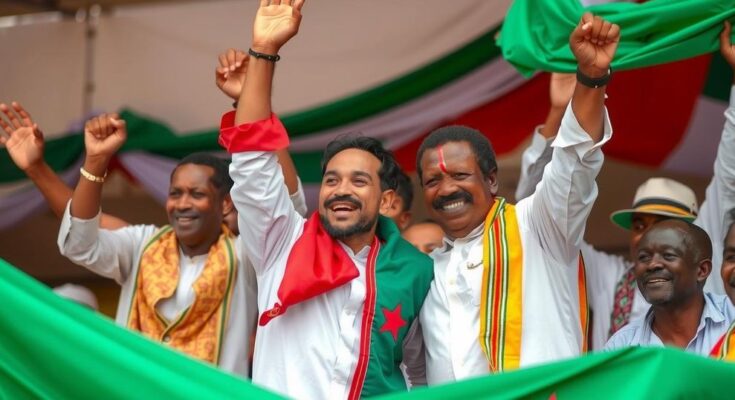Chad’s ruling party, the Patriotic Salvation Movement (MPS), won a majority in the parliamentary elections, despite a boycott by opposition parties citing concerns over transparency. Deby has been in power since assuming the presidency after his father’s death in 2021. The government declared the elections a step towards democracy, while also signaling changes in military alliances, particularly with France.
Chad’s recent parliamentary elections concluded with the ruling Patriotic Salvation Movement (MPS), led by President Mahamat Idriss Deby, claiming a majority of seats despite a significant boycott by opposition parties. The MPS secured 124 out of 188 seats as reported by the National Elections Management Agency (ANGE), which noted a participation rate of 51.56% among voters. Although opposition leaders, notably from the Transformateurs party, alleged that the elections lacked transparency, the government rebuffed these claims, insisting that the elections were a crucial step towards establishing democratic governance.
The parliamentary election results were publicized amid a complicated political backdrop. President Deby rose to power following the death of his father, former President Idriss Deby Itno, who was killed in 2021. The recent elections followed Deby’s election as president in May, three years subsequent to declaring himself interim leader. Recent developments have seen Chad terminate its defense cooperation agreement with France, further asserting its autonomy in regional security matters, akin to trends observed in neighboring countries.
The government also reported thwarting an alleged attempt to attack the presidency, labeling it a bid for destabilization. This reflects ongoing tensions and challenges within the country as it navigates its path toward democratic reforms and security concerns.
Chad’s political environment has been significantly shaped by long-standing governance challenges and external influences. President Mahamat Idriss Deby ascended to power after the assassination of his father, establishing a transitional rule that has faced scrutiny from both domestic and international observers. The electoral process in Chad has been marred by accusations of irregularities and disenfranchisement, usually marked by opposition boycotts. The current election results illustrate an ongoing shift in Chad’s relations with traditional allies, such as France, as it seeks to redefine its national policies amid increasing calls for democratic reforms.
The ruling Patriotic Salvation Movement’s victory in Chad’s parliamentary election underscores a complicated political scenario characterized by opposition boycotts and contested legitimacy. While the Deby government claims this electoral outcome marks a significant step towards democracy, opposition groups express concerns over transparency and fairness. Additionally, the recent shift in international alliances and security dynamics indicates Chad’s strategic repositioning on the global stage as it grapples with internal stability and reform.
Original Source: www.dw.com




